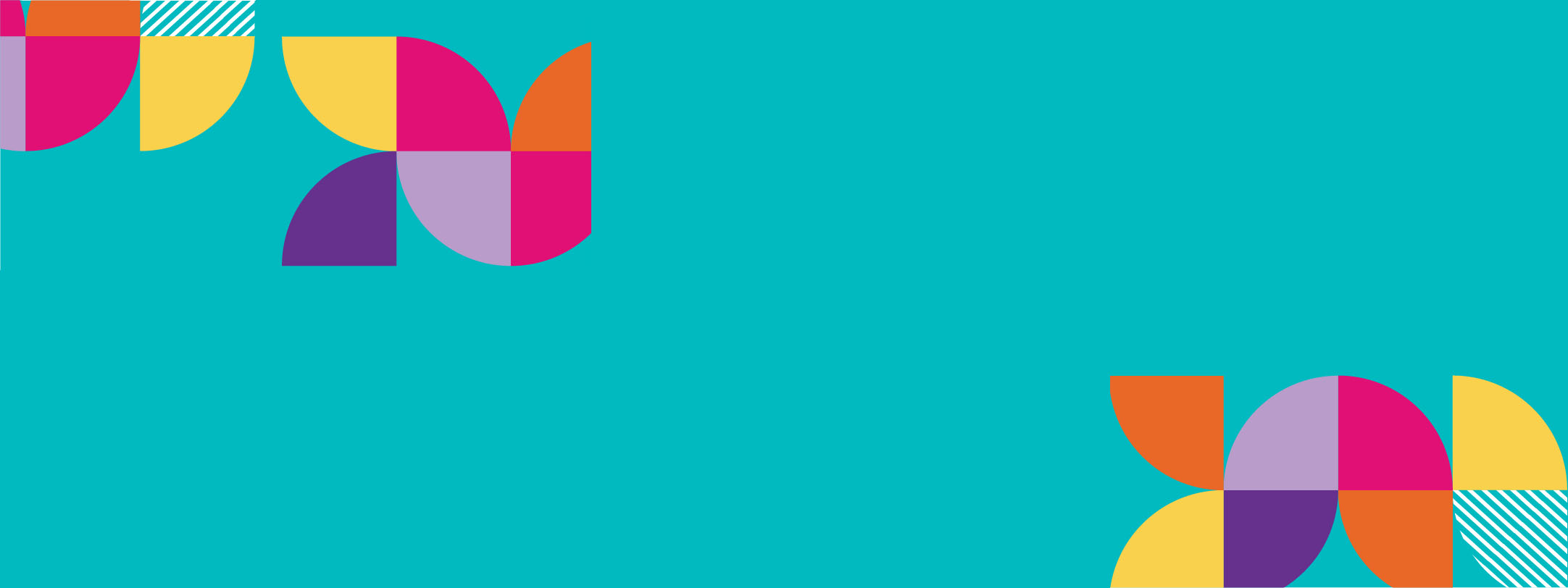On this page
We are proud to coordinate these annual awards that recognise people, businesses and organisations who have excelled through their study, work, entrepreneurship or volunteering.
Victorian Refugee Award Recipients for 2022
Awards were presented at the State Library on Monday 20 June 2022.
The 2022 recipients were also joined by the 2021 recipients, who were unable to have an in-person ceremony last year due to the pandemic.
Achievement Award
Akuch Kuol Anyieth is a public speaker and community advocate on anti-racism, a family violence and trauma-informed practice educator, and author of several books on contemporary refugee and diaspora topics.
In 1996 when Akuch was five, she fled from South Sudan to Kenya’s Kakuma Refugee Camp along with her mother and siblings while her father stayed to fight in the civil war. They spent nine years in the camp, where despite many difficult challenges, Akuch did well at school. In 2005, Akuch’s family were granted a humanitarian visa to Australia. However, Akuch and her family faced further challenges in their transition to life in Melbourne, Victoria including isolation, racism, and family violence, Akuch recounts these journeys in her biography, ‘Unknown: A Refugee’s Memoir’.
Akuch is an active advocate on behalf of her community and holds many positions. Since 2017 she has been a Youth Bible-Study facilitator in the South Sudanese Church, and sits as a board member of the Co-health Bi-Cultural Workers Board and the Australian Feminist
Law Journal Editorial Board. She started a Respectful Brothers group with Brimbank City Council, aimed at reducing social isolation of young men in the Brimbank area by promoting self-esteem, inclusivity, gaining independence and social mobility.
Akuch holds two master’s degrees: one injustice and criminology, the other focused on domestic violence in Victoria’s South Sudanese communities. She is now writing a PhD dissertation on the use of family violence intervention orders within the South Sudanese community and the application on customary laws on contemporary legal issues, including the adaptation of Western rules of law in the diaspora.
Andrew Gai is a Team Leader at Anglicare Victoria who has also formerly worked at The Orange Door, a Family Safety Victoria initiative. He arrived in Australia from South Sudan in 2006 and holds a Bachelor of Youth Work and Masters in Public Policy.
Andrew is a strong advocate to support the prevention of family violence, and volunteers to support vulnerable members of the community. During the COVID-19 lockdowns in Victoria, he volunteered with the Food Relief Program to pack and deliver groceries to multicultural communities and others facing hardship. Andrew also supports the settlement of those who arrived as refugees to transition into the Australian community, particularly vulnerable families with children.
Andrew is described as a tireless, resilient person whose humble and calm nature is reassuring during moments of crisis. He is a respected community member who is committed to contributing to community and ensuring that the most vulnerable members are looked after and cared for.
Danijel Malbasa comes from a country that no longer exists. He was a refugee twice over; in 1993 during the Croatian War of Independence, and in 1999 during the Kosovo War. As an Internally Displaced Person, Danijel, lived in a war-zone, where school was a risk and he worked as a child labourer before arriving in Australia at age 12.
Danijel holds three degrees and is a Senior National Legal Officer for a large national blue-collar union where he represents workers. He has helped reinstate unfairly terminated employees and recover over $3 million in unpaid wages and entitlements for workers. Many were non-English speaking refugee workers, and those who suffered workplace bullying, sexual harassment, and discrimination.
For around 11 years, Danijel has been advocating for refugees. He spoke at six conferences in the last two years and his work has been published in The Guardian, The Age, Road to Refuge, Australia for UNHCR, The Balkanist and three anthologies. Danijel’s writing shed a light on how white refugees from Eastern Europe managed to assimilate into Australia while not fitting as the stereotypical ‘refugee’. His book ‘In the Land of Milk and Blood’ sold in the thousands and funds went to organisations such as the Asylum Seeker Resource Centre.
Danijel volunteers at Refugee Legal Inc. as a migration agent, where he has helped secure visas for Afghan and Sri Lankan refugees. He is also Deputy Chair of Forcibly Displaced People Network; Australia’s first LGBTIQ+ refugee network where he raises funds and highlights the plight of queer refugees.
Iraqi born Sarmed Yassin works tirelessly to support the migrant and refugee community in Greater Shepparton and uses his leadership skills to solve problems to create positive impacts for migrants and refugees.
Most recently, he created Harmony Champs; an innovative project that provides anti-racism and leadership training to grade five and six students across more than a dozen state schools. Sarmed was as a key conduit and organiser for local Arabic speakers when COVID-19 induced food shortages heavily impacted community in 2021.
He has worked with the Australian Red Cross and Australian Refugee Council, is Secretary of Alkasem Youth Organisation, a graduate of Fairley Leadership and Leadership
Table Member at GS Lighthouse. Sarmed co-organised Hand4Nepal which won a 2016 Community Event of the Year Award, featured on SBS’ ‘Where are you really from?’ and was selected as a Young Leader to meet the Duke and Duchess of Sussex in 2018.
Leadership Award
Anaab arrived in Australia at the age of 16 from Somalia. She is a refugee, African, woman, hijab wearing Muslim, is physically disabled and is described as a selfless and generous leader who gives back to her community. During the COVID-19 pandemic, she created informational video content about getting vaccinated that was shared with Melbourne’s Somali community and encouraged many to act.
Anaab founded Migrants with Disabilities, a not-for-profit organisation that aims to dispel the stigma placed on people with disability in migrant communities. She is Treasurer and Board Director for Women with Disabilities and Vice President of the Victorian Public Sector Enablers Network.
Anaab advocates for greater representation of people with disabilities in workplaces and regularly and voluntarily speaks on panels to raise awareness on diversity, inclusion and belonging. She is a proactive leader who is passionate about accessibility and has helped to make significant changes to workplace environments and spaces.
Gulghotai has spent 20 years contributing to community services and international aid, largely as a volunteer.
Gulghotai is described as a strong advocate for human rights (especially women’s rights), and as being passionate about equality and representation for refugees; often going above and beyond expectations.
Since arriving in Australia, Gulghotai’s professional work involved supporting newly arrived Afghan women. She established the Afghan Women’s Organisation Victoria after recognising that they often needed additional resources and support. As its President, she is sought out to speak on social issues, advise on policies and raise awareness.
Her leadership has encouraged many Afghan women to recognise the importance of education and seek out paid employment. Recently, Gulghotai was appointed onto the Federal Government’s Advisory Panel for the settlement of Afghan nationals in Australia.
Hang arrived in Australia from Vietnam in the late 1970s. As a seven year old, Hang sailed on her uncle’s fishing boat from Vietnam to Jakarta, and was then flown to Australia by the government. Despite her experience of dislocation, poverty and exclusion, she has achieved a great deal.
With degrees in Social Work and Arts, an Executive MBA, and an executive education at Harvard Business School, Hang has been the CEO of Whitelion Youth since 2018; a not-for- profit organisation devoted to addressing youth isolation and unemployment.
Hang’s career has been entirely devoted to the not-for-profit sector, where she advocates for diversity and inclusion and challenges unconscious bias. She has contributed work to the Red Cross, EACH and is the Chair of the Board for the Victorian Pride Centre.
Hang is described as having courageous and insightful leadership and passionately advocating for a world where everyone can belong, regardless of their cultural heritage, education or where they were raised.
Homaira fled Afghanistan during the Russian war in the 1980s. Now in Victoria, Homaira is the manager of Afghan Gallery; a restaurant in Fitzroy, Vice President of the Afghan Australian Development Association, and a key leader in Victoria’s Afghan community.
Homaira dedicated many years volunteering and advocating for her community from a young age. She has been instrumental in leading Afghan representation by launching the first Afghan Youth Dancers for Hope when she was a teenager. Homaira has been involved throughout her life representing Afghanistan in many cultural dance and fashion events held at venues including The Famous Spiegeltent, Immigration Museum, Arts Centre Victoria, Federation Square and more.
In 2021 Homaira played a key leading role in supporting newly arrived Afghan refugees to Australia due to the conflict in Kabul. Working closely with AMES Australia, she took the initiative to lead her community in gathering resources such as clothing and toiletries, fundraising, and providing culturally appropriate food. She was a strong advocate for the Afghan Womens’ National Football team, helping their resettlement in Australia by liaising with sponsors for gear and equipment and coordinating introductions to Melbourne’s soccer clubs. Homaira’s leadership in supporting and advocating for refugees and the Afghan community has led to many positive outcomes for vulnerable and displaced community members.
Business Award
The members and owners of HOPE Co-Op are tertiary students who arrived as asylum seekers, who support others and each other to access and sustain tertiary education. Together, they advocate for access to education, foster a collaborative support system, and uplift asylum seekers to speak directly and have agency on the decisions that impact them.
During the 2020-21 COVID-19 lockdowns in Victoria, HOPE Co-Op successfully sourced funding to run a project called ‘Food for Hope’. Six of its members were employed and other members volunteered to provide groceries and household supplies for 25 asylum seeker student households over 16 months.
HOPE Co-Op also engages in generating positive media representation for asylum seekers by directly elevating their voices to their experiences. They authored the book ‘Shape of Hope’, which shared the perspective of young asylum seekers and their work at HOPE Co-Op. Members consult with education providers to advocate for holistic support for students from asylum seeker backgrounds and reduce barriers for them to fully participate and access education. Through their work, HOPE Co-Op makes a tangible difference to its member’s lives.
In 2010 Luz Restrepo arrived in Australia from Colombia seeking political asylum, with little knowledge of English, no friends and no support. In 2011, along with 25 other migrant and refugee women who were experiencing similar challenges, Luz founded SisterWorks.
SisterWorks provides women (sisters) from migrant, refugee, and asylum-seeking backgrounds with a safe, friendly, and nurturing space to learn, share, support and grow. The non-profit social enterprise supports women to seek employment and training, develop employable skills and participate in mentoring and other programs.
Since their Employment Support Program launched in September 2021, it has registered 185 women, 43 of whom have gone on to gain employment in various industries including hospitality, manufacturing, and IT.
SisterWorks believe that work empowers women, a unique model that is centred around empowerment, fostering a sense of independence, and providing opportunities to refugee, asylum seeker and migrant women.
Wellsprings for Women’s CEO, Dr Dalal Smiley, escaped civil war in Lebanon in the 1970s. With this experience in mind, she strives to lead Wellsprings for Women to be a culturally safe and supportive organisation for vulnerable women from multicultural, refugee and asylum seeker backgrounds. Wellsprings aims to empower and support women via educational classes, recreational activities, and employment support.
Some classes and activities on offer at their Dandenong centre include conversational English, learning about obtaining Australian citizenship, cooking culturally diverse cuisine and outdoor activities like bike riding. Wellsprings for Women’s holistic employment support program includes an employment practitioner working one-on-one with women to help write resumes, enrol in English language classes, and engage with community businesses to seek employment.
Wellsprings supports women from refugee and asylum seeker backgrounds to transition into life in Australia by teaching the skills to be an active community member, empowering them to gain independence, and contribute back into community by supporting others.
Young Leader Award
Altaf Hussein is founder and chairman of Victorian Afghan Youth Association, a public speaker, mental health advocate and is considered a role model among Afghan- Australian youth in his community. He builds understanding of the migration and refugee experience in Victoria by sharing his own story.
Altaf strives to build the mental, social, and community health of Victoria’s Afghan- Australian youth through civic engagement, community leadership, mentorship and opportunities for young people to express their voices and be heard. He helps his community celebrate events such as a Nowruz, Eid and Ramadan.
He operates a Dari language school every Saturday, where students not only learn the Dari language but socialise with members of their community. He seeks to further empower people through a family violence program, free driving school for women and teaching English language skills.
During the COVID-19 pandemic Altaf supported his community with health information in Dari and relief packages. In 2021, he and his community welcomed new refugees from Afghanistan and guided them to find employment, education and housing.
He personally supplied more than 100 people with clothes, toiletries, hygiene products, food and gift cards.Hsa Blu Ko arrived in Australia as a refugee, and after learning English and completing secondary and tertiary education, he saw the need to support his community. Today, he is seen as a pillar and leader within local sporting clubs and associations.
Blu Ko is a strong advocate for the integration and collaboration of place-based soccer clubs and their diverse communities. He volunteers for two different soccer clubs and the Karenni Association of Victoria where he plays an important role engaging young men through coaching and mentorship. He encourages them to look after their physical and mental health and find their path in life. He is a proud mentor to many and encourages a love for the sport.
Through volunteering, Blu Ko has encouraged young former refugees to join their local soccer club, build connections, and ultimately integrate into the wider community through active participation. He has helped coordinate soccer competitions in the Karenni, Karen, and Chin communities and is currently leading a community soccer competition.
Blu Ko has helped organise Karenni National Day celebrations, and tutors secondary school students with refugee backgrounds. His own story is an example to others of overcoming challenges to achieve success. He advocates for the power of education in making a difference.
Ma Aye Paw works as a bilingual worker at Bendigo Community Health Services where she was instrumental in co-designing, developing and translating factsheets and videos with key health information that could be understood and shared amongst her community during the COVID-19 pandemic.
As an Intercultural Ambassador of the City of Greater Bendigo, Ma Aye is actively involved in representing the Karenni community and participating in community events. She regularly interprets messages from the Mayor and translates COVID-19 announcements for her community.
In 2019, Ma Aye undertook a two-year project to run classes for the Karen Community Hub and Language School, where she volunteered as a committee member and later took on the role of the Secretary. During this project, Ma Aye was delivered language, weaving and dancing classes aimed at preserving the Karenni language and culture.
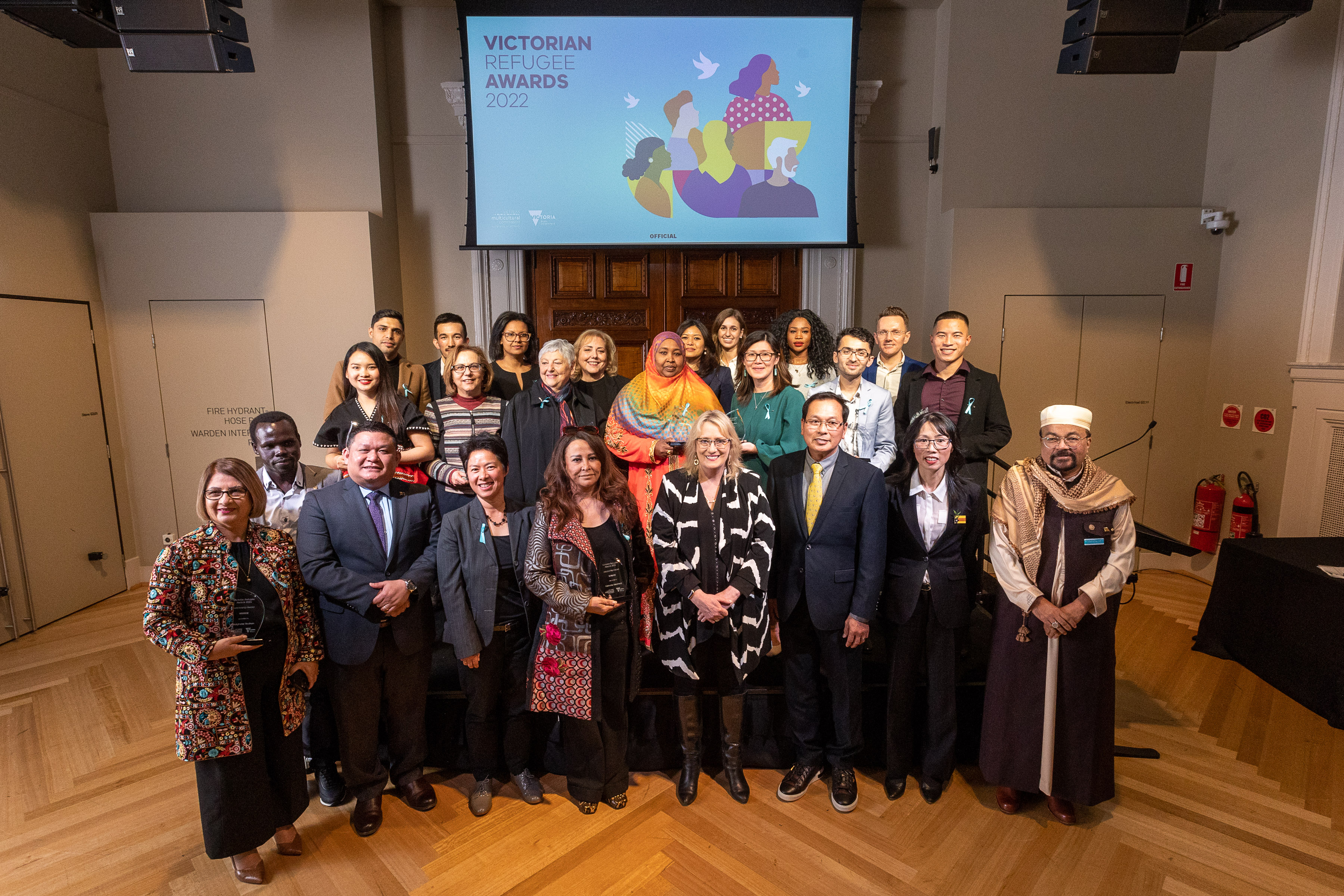
2022 Recipients
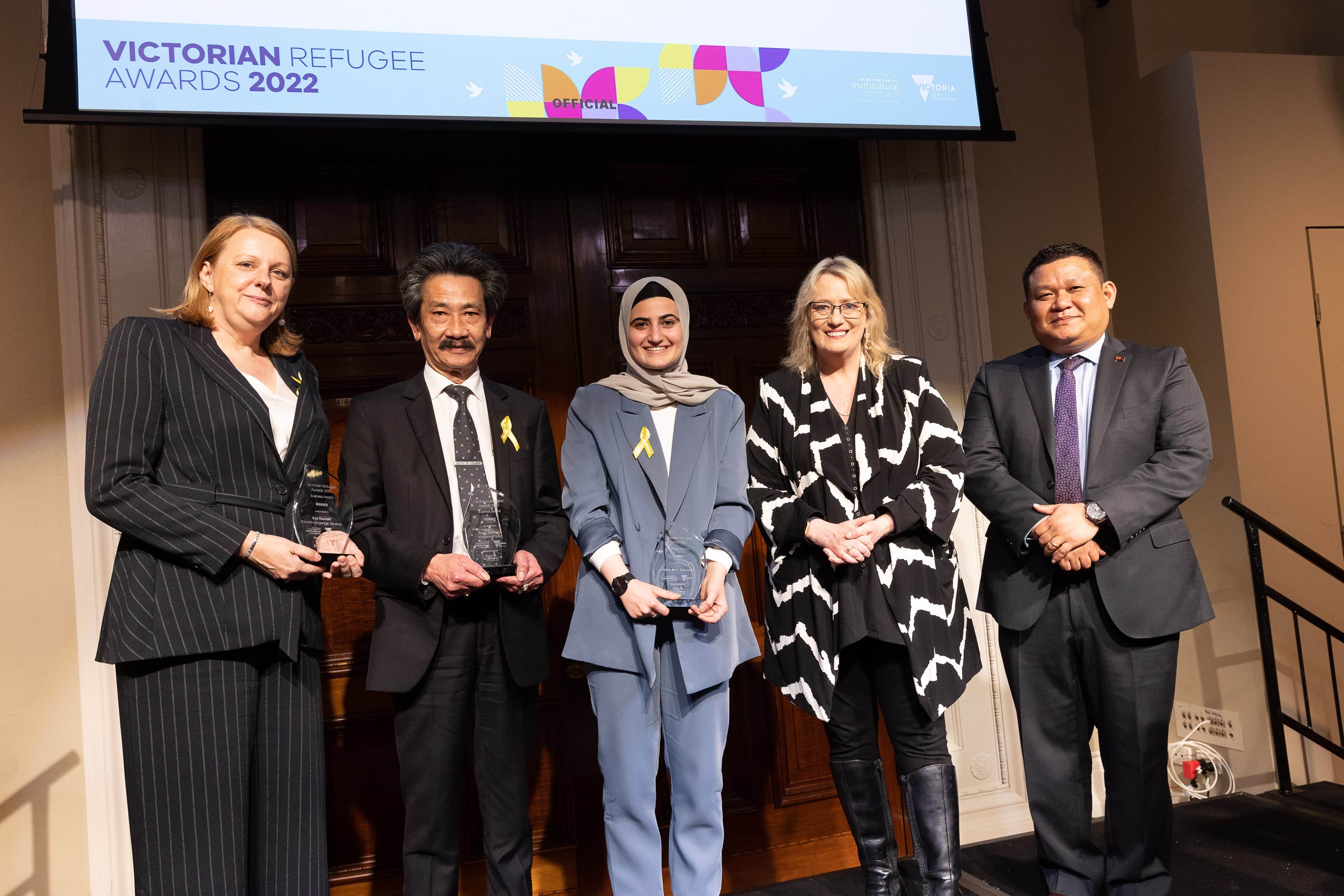
2021 Recipients
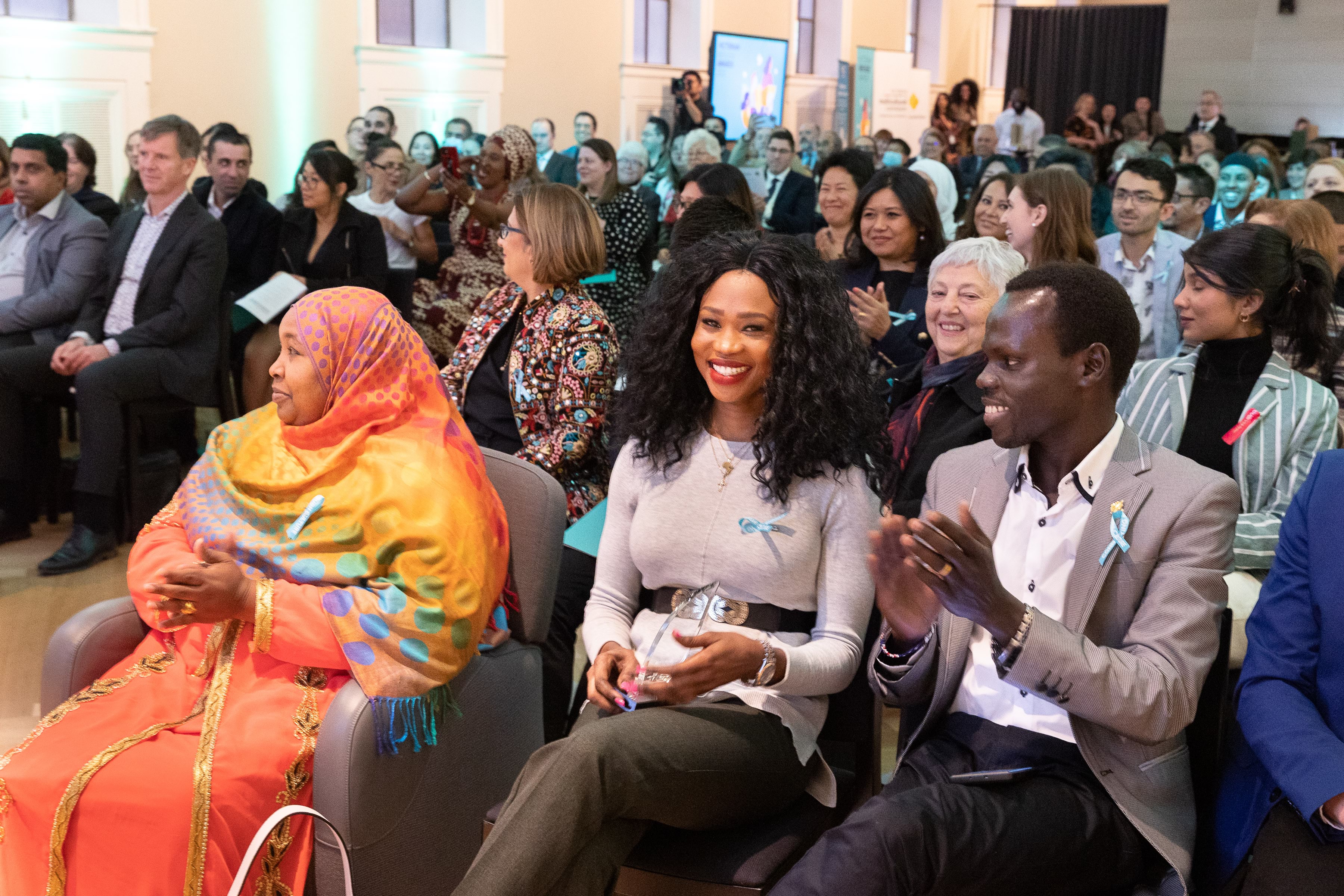
Audience
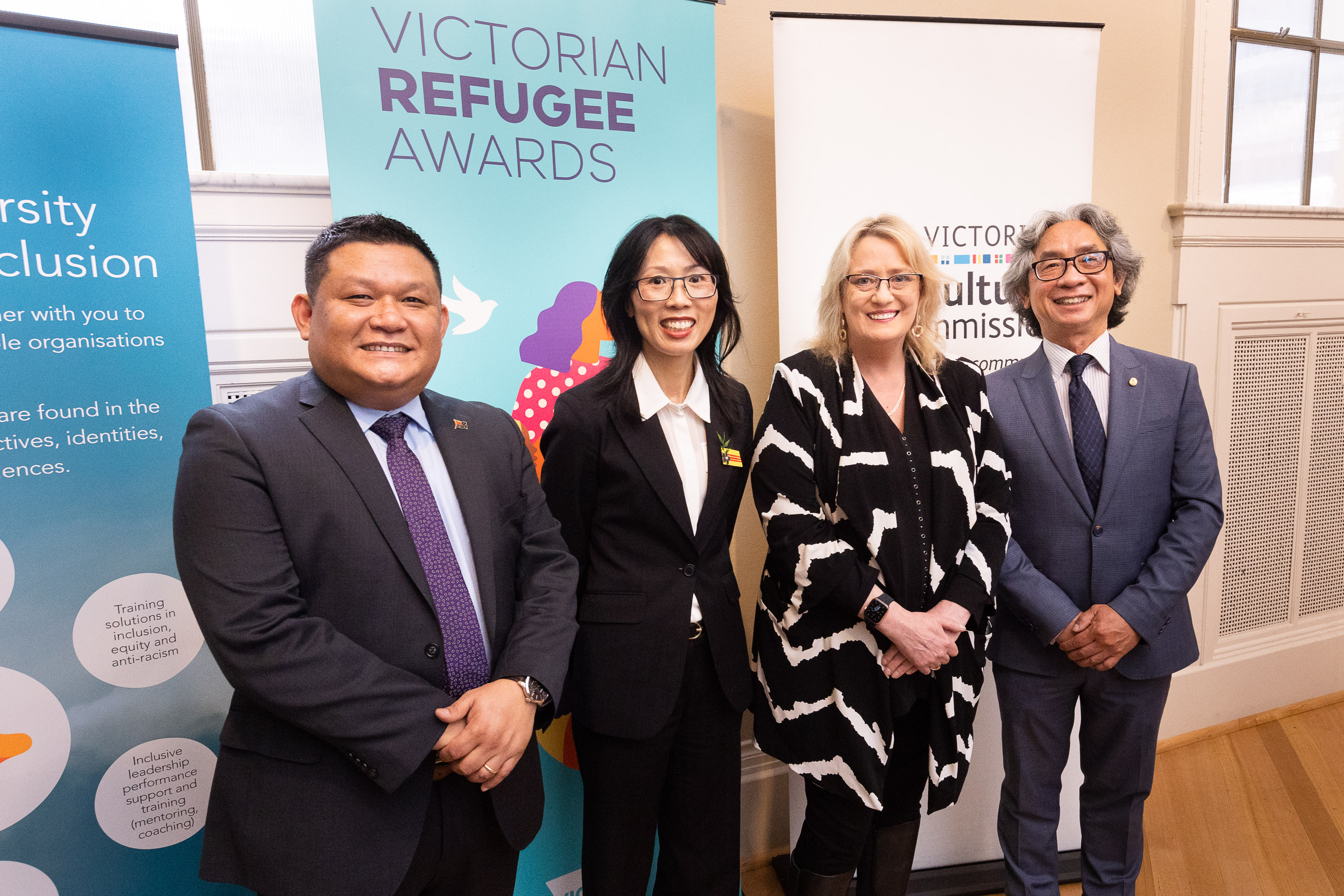
Victorian Refugee Awards 2022 - State Library of Victoria
Victorian Refugee Award Recipients for 2021
These awards were presented online (due to the pandemic) on Thursday 30 September 2021.
Achievement Award
Ali Nazari is a Hazara refugee and is the youngest of four multilingual community engagement team members at Tenants Victoria. Ali has made significant contributions to their extensive outreach program, connecting with multicultural communities throughout Victoria, in particular the state’s local Afghan and Iranian communities who speak Dari. Ali’s area of focus is in community education on tenancy rights and supporting people to access emergency COVID-19 rental protections, including financial aid.
Ali has worked on a range of successful projects with Tenants Victoria, including conducting a radio interview with SBS Dari, hosting live Facebook sessions in English and Dari with the Victoria Afghan Association Network and designing infomation posters in Dari.
Nayran Tabiei is a business owner, multilingual chef, volunteer and swimming instructor who has become an integral figure in her community, creating safe spaces and utilising her many skills and lived experiences to support others experiencing similar challenges to her own.
Nayran’s journey to Australia in 2012 from Syria and Iran inspired her passion for advocacy, and now she works to shine a light on Australia’s migrant and refugee communities experiencing disadvantage, marginalisation and disengagement.
Nayran is a qualified swim instructor for the successful program Swimmin’ Women, which supports adult migrant women learning to swim while breaking down cultural and language barriers. And her impressive talents with cooking have also helped her forge new connections with people while providing food relief and food education for migrants and the broader community.
Business Award
Happy Brain Education (HBE) is a not-for-profit organisation offering a range of programs to help young refugees excel within the Australian education system. HBE provides one-on-one tutoring sessions to support refugees academically as well as a mentoring program providing critical connections between students and skilled mentors, predominantly from tertiary institutions.
The mentors, all volunteers, are young and passionate members of the community who are driven by the belief that newly arrived migrants, asylum seekers and young people from refugee backgrounds deserve equal opportunities and access to a good education.
HBE has supported over 1,500 refugee students so far, and continues to make a deep and lasting impact on young people with difficult backgrounds.
Eva Hussain has spent over 20 years working towards improving communication with multicultural communities on important issues, such as healthcare and social inclusion.
Eva arrived in Australia in 1986 as one of the last Jewish refugees from Poland, at the age of 18. Since then, Eva has overcome social barriers such as homelessness, lack of education and domestic violence, eventually establishing her own business, Polaron Language Services.
Polaron is now a thriving enterprise that delivers language services to tens of thousands of Australians and supports many initiatives, such as Cultural Diversity Week, the Asylum Seekers’ Resource Centre and Slawik Awards, as well as many grassroots community events. Eva also provides administrative and linguistic support to Holocaust survivors.
Trung Dzung Le, a Vietnamese-born entrepreneur and community advocate, is an institution in Victoria. The founder of Hollywood Nails, an icon in the beauty industry in Melbourne, Trung Dzung has created hundreds of jobs across the state and had a wide reaching impact on the lives of those he has employed.
Trung’s support for and employment of migrants, in particular those with a refugee background, has offered critical opportunities and pathways to education and empowerment in these marginalised groups.
Trung Dzung also makes philanthropic contributions to the Victorian community and holds key advocacy roles across charities, local hospitals, ethno-specific aged care residences, multi-cultural community organisations and temples.
Leadership Award
Elvis Martin is a community advocate who has tirelessly volunteered at 32 organisations in support of issues faced by minority groups. After enduring a number of personal life challenges, Elvis worked to support those going through similar experiences to him.
Elvis has advocated for and lead projects on issues such as homelessness, mental health, asylum seekers, domestic violence, the LGBTQIA+ community and gender equality. He is currently the Principle Ambassador of the National Youth Commission Australia and R U OKAY? Day.
His significant work on many boards and in supporting engagement on social media groups such as International Students at Work has helped educate international students on their rights around workplace bullying and harassment. In his work across the councils, boards, and groups that he sits on, Elvis delivers unique value and insight into the challenges facing marginalised groups.
Philip Moo Eh is the Chair of the Australian Karen Organisation that supports and organises programs, activities and events to promote the rights of refugees in Victoria.
Some of Philip’s recent achievements include creating a quick response program to assist Burmese families, individuals and international students that were impacted by the health and economic fallout of the COVID-19 crisis. His active participation in the community and leadership through the Australian Karen Organisation, as well as convenor of the Victorian Karen Communities Network Group, has resulted in greater representation and outcomes for refugees and migrants across the state.
In a collaborative effort this year, Philip also submitted a petition to the Australian Parliament denouncing the recent violations of human rights of Karens in their state in Burma.
Beyond his extensive efforts supporting refugee and migrant groups, Philip was instrumental in raising funds to assist Victorians affected by recent bushfires and international students impacted by the COVID-19 pandemic.
Updated
